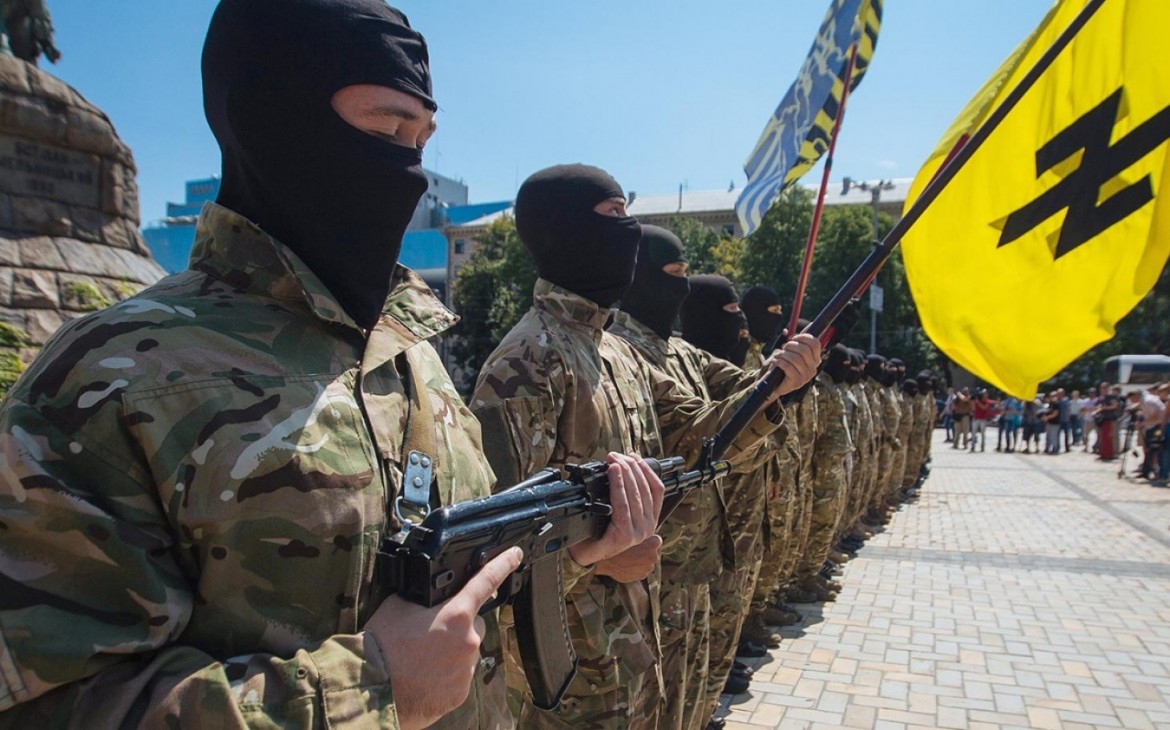Report
New law dubs ex-ISIS, Chechen extremists and neo-Nazis as Ukrainian citizens
There will now be a concentration of several thousand armed fundamentalists in the heart of Europe, who, thanks to having passports from an Associated Country to the EU, will be able to move freely across the Old Continent.

Ukraine, a country that some would like to become a full member of the European Union someday, will grant the right to obtain citizenship and a passport to the radical Islamic and extremist European right-wing militants who are fighting in the volunteer battalions in the Donbass region.
On Tuesday, the Rada approved, with 252 votes in favor, a law that “provides the opportunity to obtain [Ukrainian] nationality for those foreigners and individuals without citizenship who take part in the defense of the integrity of the country.” On Sept. 20, Ukrainian extreme right-wing groups had besieged the parliament, demanding the immediate approval of the law.
Then, Petro Poroshenko had rejected the proposed law, denouncing in a speech “both the dangers of right-wing radicalism and those of the resurgent communist fifth column, which are exploiting the difficulties of the country.” But the Ukrainian president’s resistance did not last long in the face of pressure from neo-Nazi groups.
The introduction of this law represents a danger not only for civil society in the Slavic country, but also for the security of Europe. Who are these “foreigners and individuals without citizenship” fighting alongside Ukrainian soldiers in the Donbass?
They are primarily the members of the international “Sheikh Mansur Battalion,” a volunteer armed group that has taken part in the armed conflict in eastern Ukraine alongside the Ukrainian security forces since 2014. It mainly consists in remnants from disbanded Chechen guerrillas who, after the end of the conflict in the Caucasus republic, have found a way to continue their anti-Russian crusade in a neighboring region.
In 2016, the group, which is renowned for its brutality, started to welcome foreign fighters and ISIS “veterans” from Syria and Iraq, as well as Islamic radicals from the Central Asian republics of the former USSR.
Thus, we will now be dealing with a concentration of several thousand armed fundamentalists in the heart of Europe, who, thanks to having passports from an Associated Country to the EU, will be able to move freely across the Old Continent. The law will also award Ukrainian passports to the 2,500 European right-wing extremists—many of them under investigation or indicted in their home countries for xenophobic activities—who, according to the German weekly Der Spiegel, are fighting in the Azov Battalion, the neo-fascist group that is a part of the Ukrainian National Guard and which has been denounced by the UN for torturing prisoners of war and committing sexual violence against women.
There has been no reaction to all this from the EU, even after the investigative report by journalist Oleksiy Kuzmenko, published three weeks ago by the online portal Bellingcat, which showed that one of the most prominent EU-based military training companies has been instructing the volunteers fighting in the Azov Battalion on a regular basis.
According to the BBC, the European Security Academy (ESA) based in Poland (but with branches all over the world) is “the biggest security training center outside of the United States.” As Kuzmenko has documented with photographs and official documents, from 2016 the ESA has been training not only members of the Azov Battalion, but also militants of other far-right Ukrainian supremacist groups such as Tradition and Order, The National Corps and The National Militia.
Originally published at https://ilmanifesto.it/ex-isis-estremisti-ceceni-neonazi-da-oggi-sono-cittadini-ucraini/ on 2018-10-03
